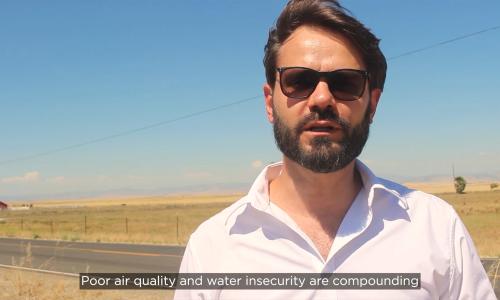Confronting Climate Change in the Gulf Coast Region: Prospects for Sustaining Our Ecological Heritage is a comprehensive 2003 report released by the Union of Concerned Scientists and the Ecological Society of America and written by leading university and government scientists in the Gulf states. This report examines the potential impacts of climate change upon the various ecosystems of this diverse and rich region.
The report is designed to raise awareness of climate change and broaden understanding of its potential impacts and solutions. It is written in a readily accessible style for the general public, state and national policymakers, and business leaders.
From Texas to Florida, the Gulf coast region is rich with ecological resources that support the development of the region's economic wealth. Over time, human activities from dam construction to shore-line development have dramatically altered natural landscapes, waterways, and ecological processes. Pressures from human activities remain the most important agents of ecological change in the region today. Over the century ahead, land-use changes are likely to increase as rapid population growth continues. Global climate change driven by rising levels of carbon dioxide and other heat-trapping greenhouse gases in the atmosphere, will interact with, and magnify, other human stresses on Gulf Coast ecosystems and the goods and services they provide. Confronting Climate Change in the Gulf Coast Region explores the potential risks of climate change to Gulf Coast ecosystems in the context of pressures from land-use. Its purpose is to help the public and policymakers understand the most likely ecological consequences of climate change in the region over the next 50 to 100 years and prepare to safeguard the economy, culture, and natural heritage of the Gulf Coast.



